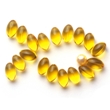
Over the next few months, we’ll be reviewing the evidence on popular therapies for our most searched conditions. As heart disease is the leading cause of death in the US, we’re kicking things off with popular therapies used to manage cardiovascular risk factors – diabetes, hypertension, and hyperlipidemia.
Make sure you’re ready to discuss berberine, often referred to as “nature’s Ozempic.” It’s increasingly popular for diabetes. Some clinical research shows that it can moderately reduce blood sugar levels and HbA1c in people with type 2 diabetes – taking berberine 500 mg by mouth 2-3 times daily might be as effective as taking metformin 500 mg by mouth 2-3 times daily. It might also have additional blood sugar-lowering effects and benefits on HbA1c when taken along with hypoglycemic drugs. Doses up to 1.5 grams daily have been used safely for up to 6 months, but keep an eye on drug interactions – early clinical research shows that it moderately inhibits cytochrome P450 3A4 (CYP3A4).
Fish oil is likely to come up in discussions about hypertension. Most clinical research shows that taking fish oil 4-15 grams daily for up to 36 weeks modestly reduces both systolic and diastolic blood pressure in adults with moderate or severe hypertension. But it’s not clear if fish oil benefits people with mild hypertension or those already on antihypertensive drugs. Taking doses of up to 3 grams by mouth daily seems to be safe for most people.
Finally, when it comes to hyperlipidemia, red yeast rice has been under the spotlight for years. Most research shows that taking red yeast rice 1-5 grams by mouth daily for up to 24 weeks reduces both total and low-density lipoprotein (LDL) cholesterol in people with high cholesterol. It’s sometimes used as an alternative to statin drugs – but patients should be aware that it contains monacolin K, which is identical to the drug lovastatin and therefore can cause the same side effects. While it’s been used safely in doses of 1.2 grams by mouth daily, there’s been a wave of product recalls and safety concerns over this past year. A manufacturer in Japan has been at the center of this, with over 100 hospitalizations and at least 5 deaths linked to red yeast rice products. Advise patients to be very cautious.
Check out our berberine, fish oil, and red yeast rice monographs to learn more. And don’t forget to take advantage of our Comparative Effectiveness charts to learn about other therapies studied for these conditions.
The information in this brief report is intended for informational purposes only, and is meant to help users better understand health concerns. This information should not be interpreted as specific medical advice. Users should consult with a qualified healthcare provider for specific questions regarding therapies, diagnosis and/or health conditions, prior to making therapeutic decisions. Copyright © 2025 NatMed. Commercial distribution or reproduction prohibited. NatMed is the leading provider of high-quality, evidence-based, clinically-relevant information on natural medicine, dietary supplements, herbs, vitamins, minerals, functional foods, diets, complementary practices, CAM modalities, exercises and medical conditions. Monograph sections include interactions with herbs, drugs, foods and labs, contraindications, depletions, dosing, toxicology, adverse effects, pregnancy and lactation data, synonyms, safety and effectiveness.
